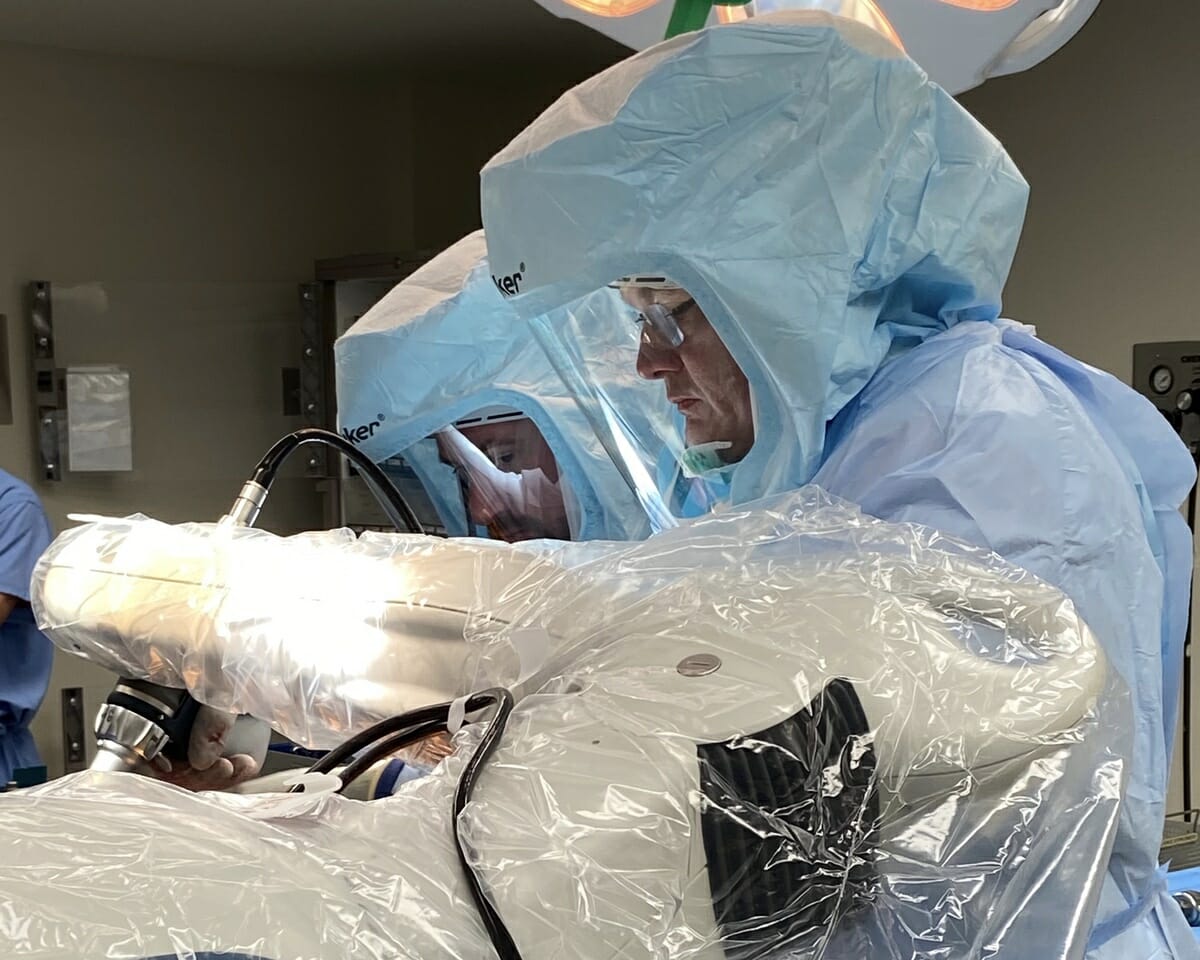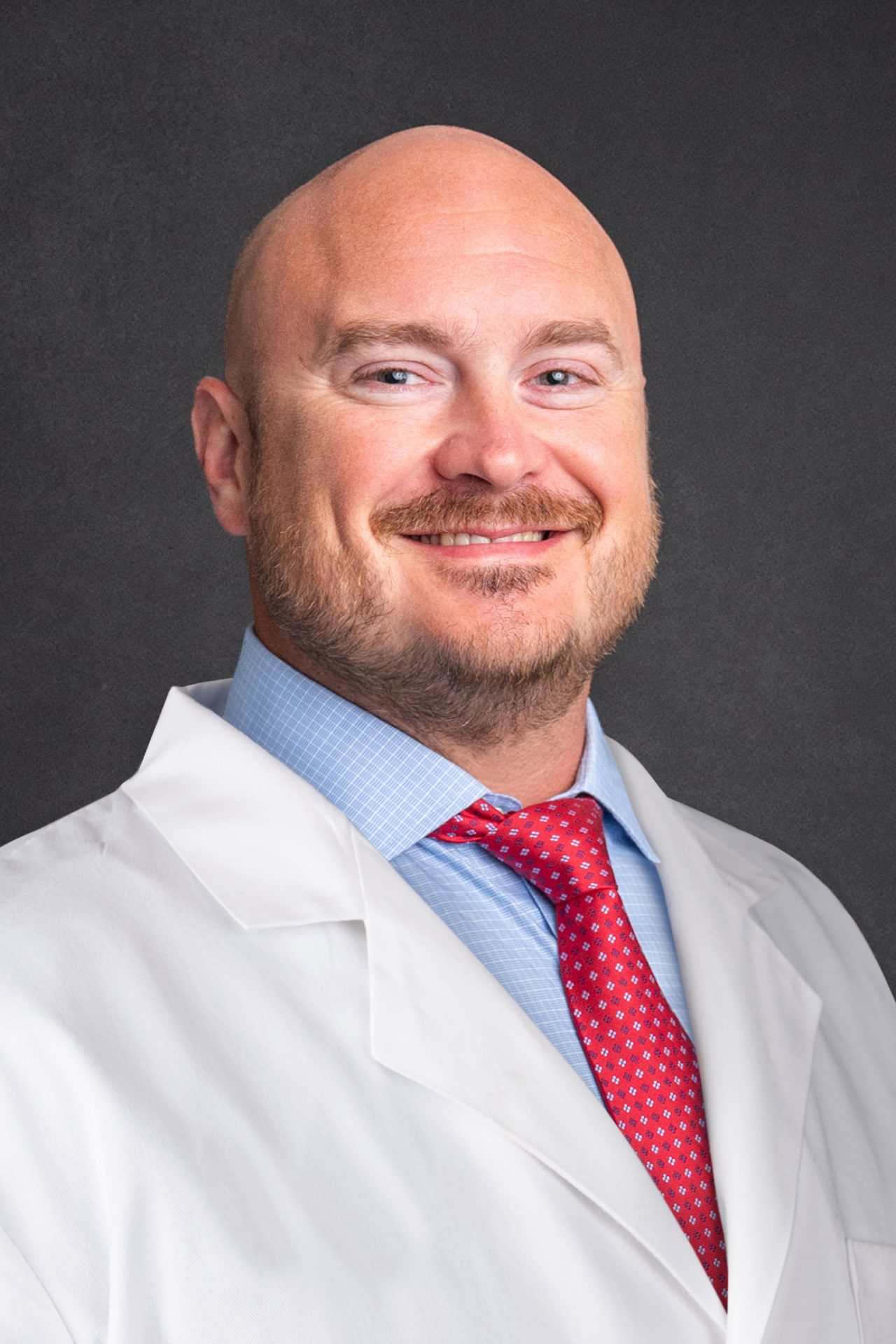Special to The Island News
Beaufort Memorial Hospital, the first healthcare provider in the area to offer robotic-assisted hysterectomies, is now using the advanced technology to customize and improve total knee replacements.
The cutting-edge Mako Robotic Arm-Assisted Surgery System allows orthopaedic surgeons to create a surgical plan unique to a patient’s anatomy, and then use the robotic arm to implant the components with greater precision, leading to better function and more natural movement.
“With the robot, we can more closely customize the ideal position of the knee implant, increasing its longevity,” board-certified BMH orthopaedic surgeon Dr. Edward Blocker, chair of the hospital’s orthopaedic department, said in a release. “We’ve been watching this technology for a long time and think it clearly offers a benefit.”
Blocker, of Beaufort Memorial Orthopaedic Specialists in Port Royal, performed the hospital’s first robotic-assisted knee replacement surgery late last month and has another 10 scheduled over the next few weeks.
Four other board-certified orthopaedic surgeons on the BMH medical staff have been trained to perform the surgery. The doctors now offering the state-of-the-art procedure are Drs. Kevin Jones, Vandit Sardana and Leland Stoddard, also with Beaufort Memorial Orthopaedic Specialists, and Carson Sanders, of Beaufort Sports & Spine Center.
With the Mako system, the first step in total knee replacement is a patient-specific surgical plan. A CT scan is taken of the knee to create a 3-D virtual model of the patient’s unique joint. The surgeon uses the model to evaluate bone structure, disease severity, joint alignment and the surrounding bone and tissue to determine the optimal size, placement and alignment of the implant.
“It’s important to understand the robot does not perform the surgery, make decisions on its own, or move without the surgeon guiding the robotic arm,” Dr. Jones, who advocated for the robotic system, said.
During the operation, the surgeon follows the preoperative plan, guiding the robotic instrument arm to remove arthritic bone and cartilage and position the prosthetic joint. A virtual boundary established by the robot prevents the surgeon from crossing the bone field into surrounding tissue.
“There is less irritation of the soft tissue,” Jones said, “Less soft-tissue irritation could translate to less pain.”
In a clinical study, Mako patients surveyed six months after surgery reported lower pain scores and more satisfaction compared to those who received a conventional joint replacement.
The Mako system also offers dynamic joint balancing.
“We can quantifiably measure the tension of the ligaments on each side of the joint and tweak it if it’s not perfect,” Blocker said. “Ligament balance is key to a successful long-term outcome.”
For more information on Mako robotic-assisted total knee replacement, visit BeaufortMemorial.org/MakoKnee.
Above: Beaufort Memorial orthopaedic surgeon Dr. Edward Blocker performs the hospital’s first robot-assisted knee replacement last month.








